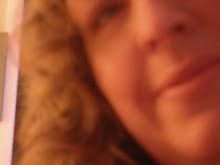It is not my experience that society hates and fears the writer, or that society adulates the writer. Instead my experience is the common one, that society places the writer so far beyond the pale that society does not regard the writer at all.
Whenever an encounter between a writer of good will and a regular person of good will happens to touch on the subject of writing, each person discovers, dismayed, that good will is of no earthly use. The conversation cannot proceed. From such chastening encounters I have always learned far more than I intended.
Once, for example, I learned from a conversation with a neighbor that I had been living as it were in a fool's paragraph.
This neighbor, who crewed on a ferryboat, was one of the world's good, sane people. He was the local sheriff. He was an emergency medical technician, a volunteer fireman, a husband and father, and an unequaled contributor of witty remarks into the window of each car that rolled on and off the ferry. May his tribe increase.
One rainy day, this member of the real world gave me a ride home. I invited him in for a minute, and somehow all hell broke loose.
Politely, he asked me about my writing. Foolishly, not dreaming I was about to set my own world tumbling down around my ears, I said I hated to write. I said I would rather do anything else. He was amazed. He said, 'That's like a guy who works in a factory all day, and hates it.' Then I was amazed, for so it was. It was just like that. Why did I do it? I had never inquired. How had I let it creep up on me? Why wasn't I running a ferryboat, like sane people?
I hid my amazement as well as I could from both of us, and said that actually I avoided writing, and mostly what I did by way of work was fool around, and that for example that morning I had been breaking my brain trying to explain Whitehead to my journal. Why, he wanted to know, was I doing that? Again I stopped completely short; I could not imagine why on earth I was doing that. Why was I doing that?
But I rallied and mustered and said that the idea was to learn things; that you learn a thing, and then as a matter of course you learn the next thing, and the next thing ... As I spoke he nodded precisely in the way that one nods at the utterances of the deranged. '... And then,' I finished brightly, 'you die!'
At this we exchanged a mutual and enormous smile. Still nodding and smiling in perfect agreement, we ended the visit and walked to the door.
The Writing Life - Annie Dillard




I don't write because I want to, I write because I HAVE to.
ReplyDeleteYeah, absolutely. I don't work with clay cause I want to but because I HAVE to as well. Wheeee!!!
ReplyDeleteI think Annie Dillard is the same. In fact, I admire her all the more because her words are wrought out of her, every word extracted like a tooth. I think I would give up if it was that intricate and precise.